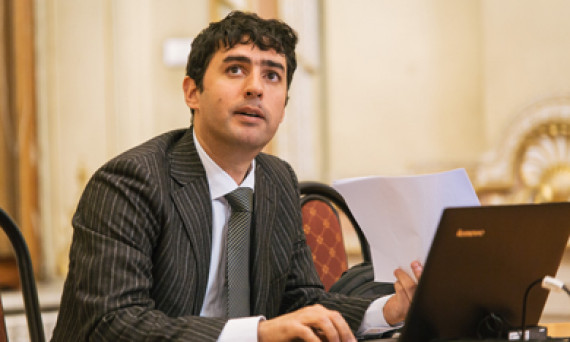On November 23d, 2015 as part of the Res Publica Center’s regular seminar Carlo Taviani (German Historical Institute in Rome) delivered a lecture.
His presentation was dedicated to the complex political system in Genoa in the late Middle Ages and the early modern era. The commune established there, as in the majority of northern Italian cities at the turn of the 11th-12th centuries, shared, beginning in the 14th century, its own political powers with a private corporate structure that had grown up in its womb—the Bank of San Giorgio. During the 14th-15th centuries, the latter gradually redeemed various rights and privileges from the commune. Thus, by the end of the 14th century the Bank of San Giorgio virtually governed the overseas territories belonging to Genoa, such as its colonies in Crimea. This status was then fixed de iure.
The Bank of San Giorgio was, for all intents and purposes, a state within a state that possessed its own army, fleet and taxation system. Moreover, the laws of Genoa did not operate in the territories directly subordinated to the corporation: there existed a special jurisdiction for the Bank of San Giorgio. According to Taviani, the latter was not a bank in the modern sense of the word. Although undoubtedly its financial operations brought in considerable profits, the corporation’s primary purpose was to control the territories and lands that constituted its main value in the Middle Ages. For a long time it was believed that the Bank of San Giorgio was no more than a screen, behind which hid the very same Genoese patricians who actually ran the commune at that time. Carlo Taviani’s study shows that this was not so: the bank and the commune were led by different oligarchic clans that were often warring with one another.
The main conclusion of the study was that, in an effort to ensure its extraterritoriality and even independence from the commune, the Bank of San Giorgio became (in accordance with its main features) a forerunner of the global corporations of the modern era, such as the East and West India Companies.
Alexei Vovin










